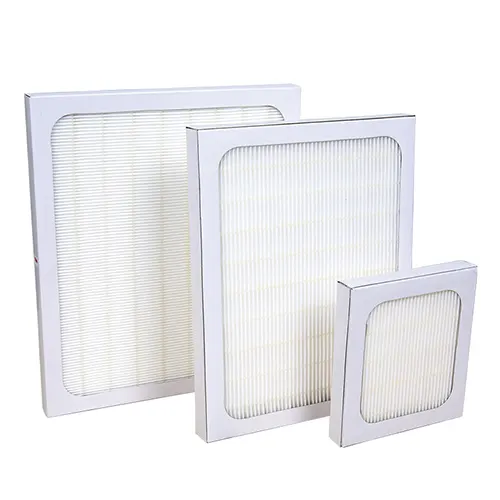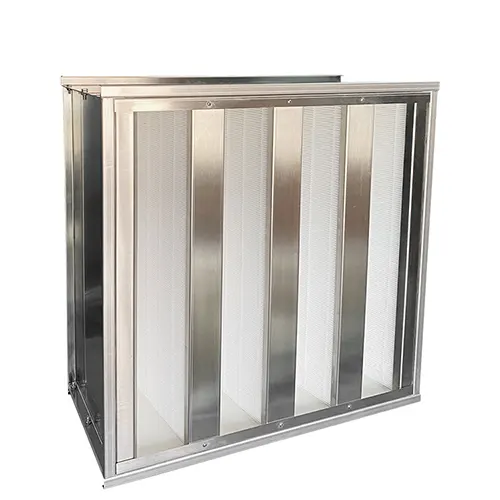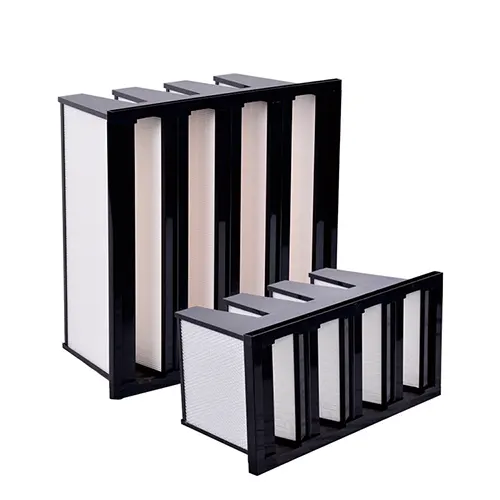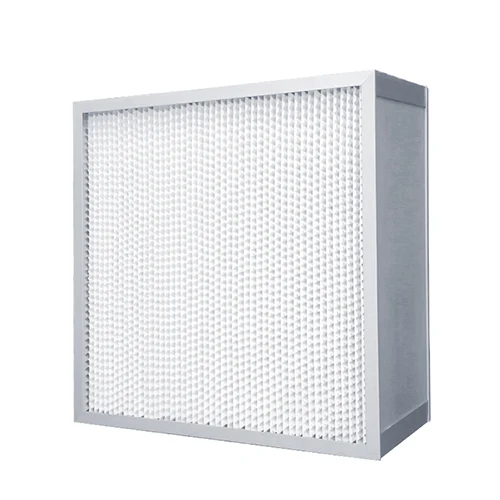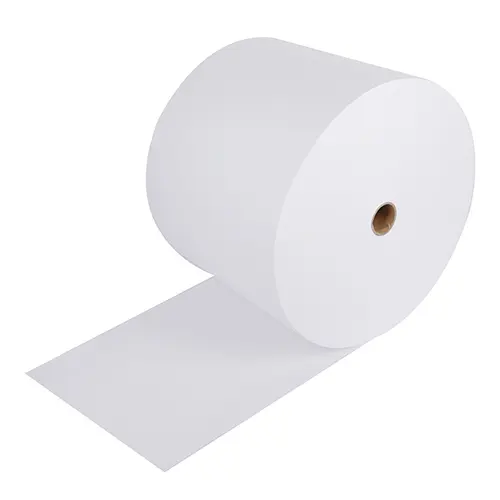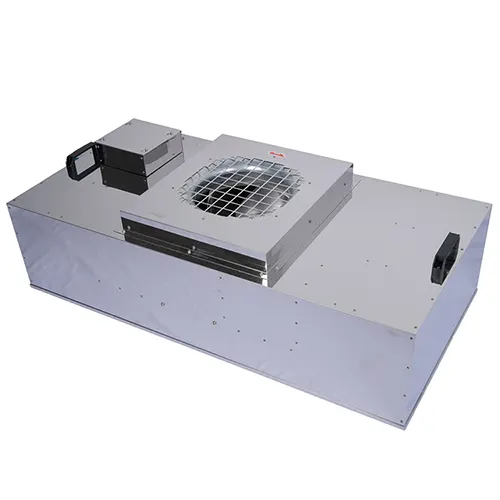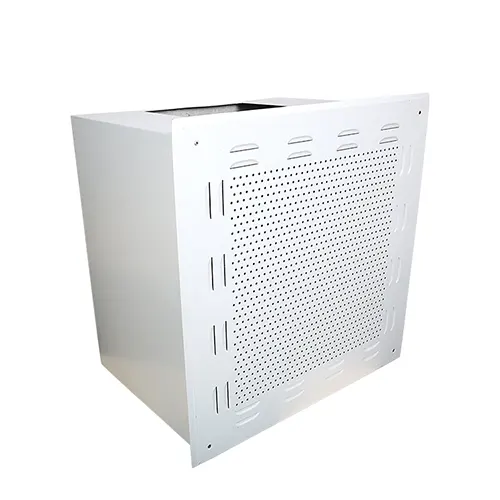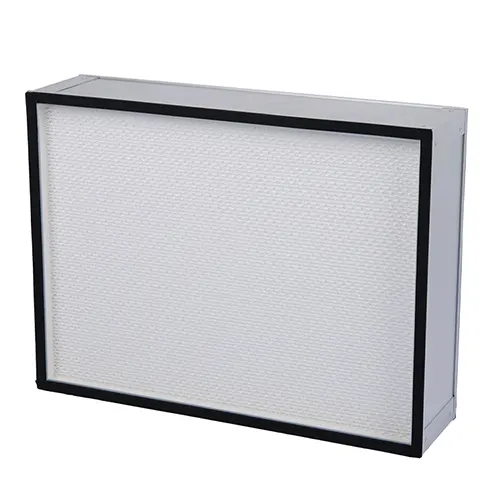What Is A HEPA Filter and the HEPA Filter Types
HEPA filters are the gold standard in air filtration technology, renowned for their ability to capture a significant amount of airborne particles. The importance of HEPA filters in air purification lies in their ability to capture fine particulates that other filters might miss.
What Is A HEPA Filter?
HEPA filters, or High-Efficiency Particulate Air filters, are a type of air filter that plays a crucial role in air purification or filtration systems.
These filters are designed to trap a very high percentage of airborne particles, making them highly effective at improving indoor air quality.
Specifically, a standard HEPA filter is required to capture at least 99.97% of particles that are 0.3 microns in diameter, which includes many types of dust, pollen, mold spores, smoke particles, and other airborne contaminants.
HEPA filters are effective at reducing allergens in the air, helping to alleviate symptoms for people with allergies or respiratory issues. They also play a vital role in preventing the spread of airborne diseases and in removing pollutants from indoor environments, contributing to overall better respiratory health and wellbeing.
How HEPA Filter Works?
HEPA filters work through a combination of three major mechanisms to capture particles in the air: interception, impaction, and diffusion. These mechanisms are highly effective against a wide range of particle sizes, especially those that are 0.3 microns in diameter, which are typically the hardest to capture.
Interception: As air flows through the HEPA filter, particles moving with the airstream are captured when they come into close contact with a fiber. This mechanism primarily traps larger particles that cannot easily navigate around the fibers.
Impaction: Larger and heavier particles are unable to adjust their path as fast as the air around the filter fibers. As a result, they collide with the fibers and stick to them. This process is particularly effective for particles larger than 0.3 microns.
Diffusion: This mechanism is most effective with the smallest particles, those smaller than 0.1 microns. These tiny particles move erratically due to their interactions with gas molecules (a process known as Brownian motion). This erratic movement increases the likelihood of them hitting and sticking to the fibers.
The HEPA filter material itself is made up of a dense mat of very fine fibers, typically made from materials like glass fibers. The fibers are randomly arranged and form a complex web with multiple layers.
When air passes through this dense mat, particles are trapped by the aforementioned mechanisms, resulting in highly purified air on the other side of the filter.
What Are the Types of HEPA Filters?
HEPA filters come in various shapes and sizes, tailoring to a wide range of applications and devices. The shape of a HEPA filter often depends on its intended use, the design of the air filtration system, and the space constraints within the device it’s being used in.
Are HEPA Filters Washable?
When it comes to maintaining HEPA filters, one of the common questions that arise is whether they are washable.
The answer largely depends on the specific type of HEPA filter you have, as there are both washable (or reusable) and non-washable HEPA filters available on the market. Understanding the distinction between these types is crucial for proper filter maintenance and ensuring the longevity and effectiveness of your air purification system.
The majority of True HEPA filters are not washable. These filters are designed to capture extremely small particles, and washing them can damage the delicate fibers that make up the filter or the structure, reducing their efficiency. When these filters become clogged or dirty, they must be replaced rather than cleaned.
HEPA Filters and Air Quality
High-Efficiency Particulate Air (HEPA) filters play a pivotal role in maintaining and improving indoor air quality. By design, these filters are capable of capturing at least 99.97% of airborne particles as small as 0.3 microns, including dust, pollen, mold spores, and various pollutants. The efficiency of HEPA filters in trapping these particles makes them an essential component in air purification systems, contributing significantly to healthier indoor environments.
The Role of HEPA Filters in Improving Indoor Air Quality
These filters are particularly effective in environments compromised by external pollutants or where air quality is a concern, efficiently reducing the concentration of harmful particles. For individuals with allergies or asthma, HEPA filters offer relief by eliminating common allergens like pollen, pet dander, and dust mites from the air, thereby improving respiratory health. They also mitigate the intrusion of urban pollutants such as smoke and smog, ensuring a cleaner indoor atmosphere. Furthermore, their ability to capture bacteria and virus particles significantly curtails the spread of airborne diseases, a benefit that’s invaluable in healthcare settings for safeguarding patient health.
Impact on Health and Environment
The use of HEPA filters leads to health benefits such as fewer respiratory problems and allergic reactions, while also contributing to environmental well-being by promoting energy efficiency in buildings. By improving air purity, HEPA filters also enhance cognitive function and overall well-being, making them indispensable in maintaining cleaner, healthier indoor spaces and supporting a more sustainable environment.
Conclusion
Understanding the different types of HEPA filters is essential for effectively addressing various air quality needs. Each type, from the highly efficient True HEPA to the more affordable HEPA-type filters, offers specific benefits tailored to different environments, whether for allergy relief at home, pollution control in urban settings, or pathogen reduction in healthcare facilities.
Choosing the right HEPA filter ensures that you can significantly improve the air quality in your specific setting, contributing to better health and well-being. It’s important to carefully evaluate your air purification needs and select a filter that aligns with your goals. Investing in the appropriate HEPA filter means committing to a cleaner, healthier environment, and safeguarding the well-being of those around you.
